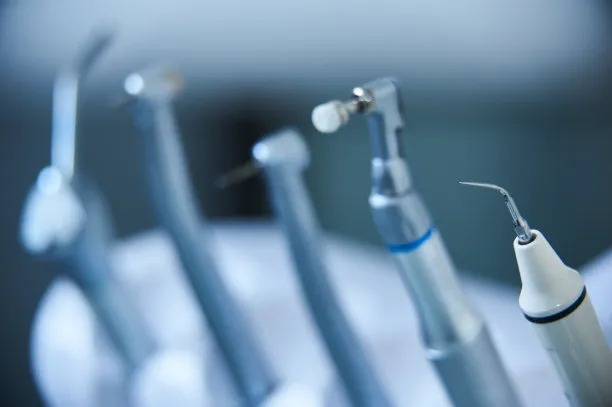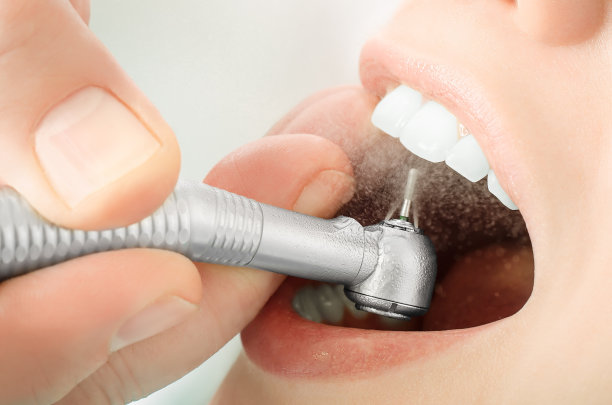Summary: Extracting a tooth is not merely a dental procedure but a transformative journey that significantly impacts both dental health and personal wellbeing. This article delves into the necessity and process of tooth extraction, explaining its implications on overall dental health, emotional resilience, social interactions, and lifestyle adjustments. It highlights how the removal of a problematic tooth can alleviate pain, prevent further dental issues, and enhance one’s quality of life. Additionally, the article discusses the psychological effects of tooth extraction, providing insights into coping mechanisms and personal growth. Ultimately, understanding the multifaceted impact of a tooth extraction empowers individuals to embrace their dental health decisions with confidence.
1. Understanding the Need for Tooth Extraction

Tooth extraction is often deemed necessary when a tooth is severely decayed, damaged, or impacted. In cases of advanced decay, the tooth may pose a risk to surrounding teeth and overall oral health. Dentists typically recommend extraction as a means to eliminate pain and prevent the spread of infection.
Orthodontic issues can also necessitate tooth extraction, particularly in severe cases where overcrowding can hinder proper alignment. By removing specific teeth, orthodontic treatment can proceed more effectively, leading to healthier bites and straighter smiles.
Additionally, wisdom teeth extractions are common as these teeth often do not have enough space to grow properly. This can result in impaction, causing pain, swelling, and infections. The timely removal of such teeth plays a crucial role in maintaining dental health.
2. Impacts on Dental Health Post-Extraction
The immediate aftermath of a tooth extraction can include discomfort and swelling, but it also opens the doorway to improved dental health. Following the extraction, individuals often experience significant relief from pain associated with a problematic tooth. This newfound comfort can be life-changing, allowing individuals to focus on daily activities without the distraction of dental discomfort.
Furthermore, tooth extraction can prevent potential complications such as abscesses or further decay that threaten adjacent teeth. With the extraction of a compromised tooth, the rest of the dental structure can potentially remain stronger and healthier, reducing the likelihood of future dental challenges.
Post-extraction care is critical; it includes maintaining oral hygiene and regular check-ups to ensure the remaining teeth remain healthy. Implementing good dental practices can further enhance overall health outcomes as patients often become more mindful of their dental hygiene habits following the experience of a tooth extraction.
3. Psychological Effects of Tooth Extraction
The emotional journey of tooth extraction can be multifaceted. Initially, patients may feel anxious or fearful about the procedure itself. Concerns about pain, recovery, and the potential impact on appearance can weigh heavily on an individual’s mind.
However, once the tooth is extracted and recovery begins, many patients report a sense of relief and liberation. The reduction of persistent pain often translates to an overall improvement in mood and mental well-being. This newfound comfort can instill a greater appreciation for one’s dental health and motivate individuals to maintain better oral hygiene.
Moreover, coping with the experience can lead to personal growth. Individuals often become more resilient and learn effective coping strategies when facing dental challenges. These strategies can bolster not only their approach to dental health but also their capacity to handle various life challenges.
4. Social and Lifestyle Adjustments
The extraction of a tooth can prompt significant social and lifestyle changes. Initially, individuals may need to adjust their eating habits, opting for softer foods during the healing process. These dietary changes can foster increased mindfulness about nutrition and self-care.
Socially, an individual may experience a temporary setback in confidence, particularly if the extraction affects visible teeth. However, this experience can also strengthen social bonds through shared experiences and understanding with peers who have undergone similar dental procedures.
Ultimately, the change in appearance or eating habits can inspire individuals to advocate for their dental health more robustly. This may include seeking regular dental check-ups and engaging more with family and friends about oral hygiene practices, thus fostering a proactive approach to dental health.
Summary:
To conclude, the journey of extracting a tooth encompasses not only physical changes but emotional and social transformations as well. It serves not just as a remedy for dental issues but as a catalyst for enhanced self-awareness and improved overall dental health. Understanding the comprehensive impact of tooth extraction equips individuals to make informed decisions about their dental care.
This article is compiled by Vickong Dental and the content is for reference only.
Vickong Dental
Vickong Dental is a large medical group established in Hong Kong in 2008 by professors from well-known medical universities in Guangdong and Hong Kong, as well as medical doctors from key national '985' universities (including Master's supervisors and senior professors). The chain of branches brings together expert dentists with PhDs and Master's degrees from Hong Kong and Mainland China, committed to providing high-quality dental treatment.
"Vickong Dental Practices the University Motto of 'Healing and Serving Society,' with a Stable Operation for Sixteen Years. It Has Been honored with Hong Kong Enterprise Leaders's Choice,' and is a Global Trusted Implant Center for the Nobel Implant System. Recommended by Hong Kong Metro Broadcast and Guangdong Television, it Serves Customers from Over Thirty Countries and Regions, Gaining the Trust and Favor of Citizens from the Guangdong-Hong Kong-Macau Greater Bay Area and Surrounding Cities.

Thousands of customers' unanimous praise
The most recognized and highly recommended dental service by customers in the Guangdong-Hong Kong-Macau Greater Bay Area
We Ensure You Receive Detailed Care and Attention Here
Hong Kong standards, Shenzhen prices, Your Trusted English-speaking dentists

Vickong Dental Medical-Grade Instrument Disinfection Process
Vickong Dental Medical-Grade Instrument Disinfection Process

Vickong Dental Chain: A Warm and Comfortable Environment for Treatment






Appointment Hours

Q&A
Why choose Vickong Dental?
Vickong Dental practices the university motto 「Medicine to Benefit Society」, with each branch bringing together highly qualified dentists with doctoral and master’s degrees from Hong Kong and the Mainland, and has maintained seventeen years of steady operation。Recipient of 「2024 Hong Kong Enterprise Leaders Brand」, 「2025 Hong Kong Enterprise Leaders Brand」, a Nobel Biocare Global Trusted Implant Center, and a brand recommended by Metro Radio Hong Kong and Guangdong TV。
To date, we have served customers from more than thirty countries and regions,earning exceptionally high word-of-mouth recognition and trusted recommendations from residents across the Guangdong-Hong Kong-Macao Greater Bay Area and surrounding cities
We have eight major branches in Zhuhai、Shenzhen,and a consultation and service assurance center in Hong Kong,so you can book a free consultation at any time for any questions,which is very reassuring.
If I do not accept the quotation after the CT scan, will I be charged??
No! As long as the actual treatment has not started, you will not be charged any fees.
Will there be any additional charges during the treatment process?
No, there won’t be any additional charges. Before treatment begins, we will clearly explain the treatment plan and its corresponding fees. Only after the patient agrees and signs the consent form will we proceed with the dental service.
Can I pay in Hong Kong dollars?
Yes. Vickong Dental accepts payment in Hong Kong dollars. The amount will be converted based on the exchange rate of the day, and the applicable rate will be clearly communicated to you in advance.
Can I reschedule my appointment at any time?
Yes. Please contact us via **WeChat** or **WhatsApp** as early as possible, providing your original appointment time and details, along with your preferred new date and time slot for rescheduling.













